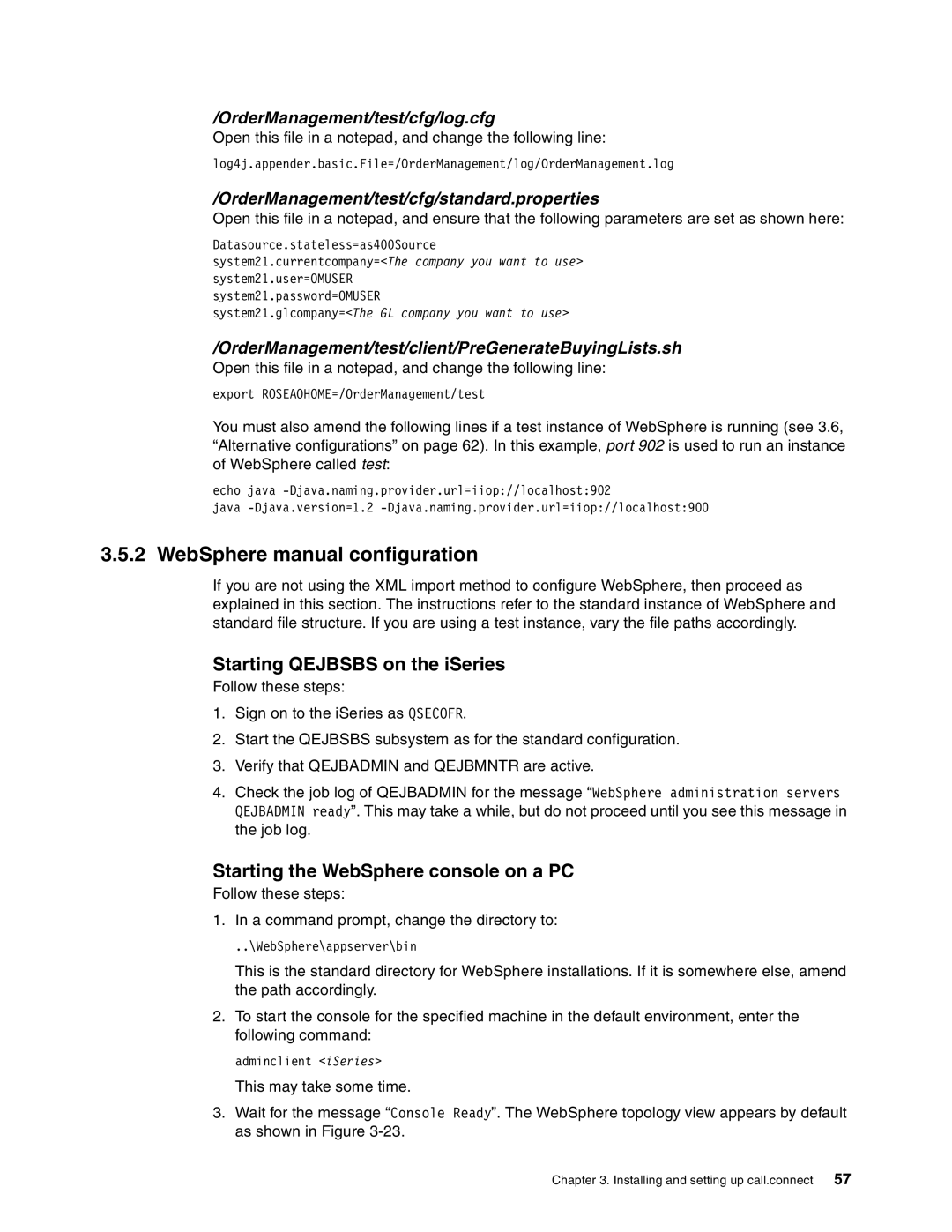/OrderManagement/test/cfg/log.cfg
Open this file in a notepad, and change the following line:
log4j.appender.basic.File=/OrderManagement/log/OrderManagement.log
/OrderManagement/test/cfg/standard.properties
Open this file in a notepad, and ensure that the following parameters are set as shown here:
Datasource.stateless=as400Source system21.currentcompany=<The company you want to use> system21.user=OMUSER
system21.password=OMUSER
system21.glcompany=<The GL company you want to use>
/OrderManagement/test/client/PreGenerateBuyingLists.sh
Open this file in a notepad, and change the following line:
export ROSEAOHOME=/OrderManagement/test
You must also amend the following lines if a test instance of WebSphere is running (see 3.6, “Alternative configurations” on page 62). In this example, port 902 is used to run an instance of WebSphere called test:
echo java
java
3.5.2 WebSphere manual configuration
If you are not using the XML import method to configure WebSphere, then proceed as explained in this section. The instructions refer to the standard instance of WebSphere and standard file structure. If you are using a test instance, vary the file paths accordingly.
Starting QEJBSBS on the iSeries
Follow these steps:
1.Sign on to the iSeries as QSECOFR.
2.Start the QEJBSBS subsystem as for the standard configuration.
3.Verify that QEJBADMIN and QEJBMNTR are active.
4.Check the job log of QEJBADMIN for the message “WebSphere administration servers QEJBADMIN ready”. This may take a while, but do not proceed until you see this message in the job log.
Starting the WebSphere console on a PC
Follow these steps:
1.In a command prompt, change the directory to:
..\WebSphere\appserver\bin
This is the standard directory for WebSphere installations. If it is somewhere else, amend the path accordingly.
2.To start the console for the specified machine in the default environment, enter the following command:
adminclient <iSeries>
This may take some time.
3.Wait for the message “Console Ready”. The WebSphere topology view appears by default as shown in Figure
Chapter 3. Installing and setting up call.connect 57
